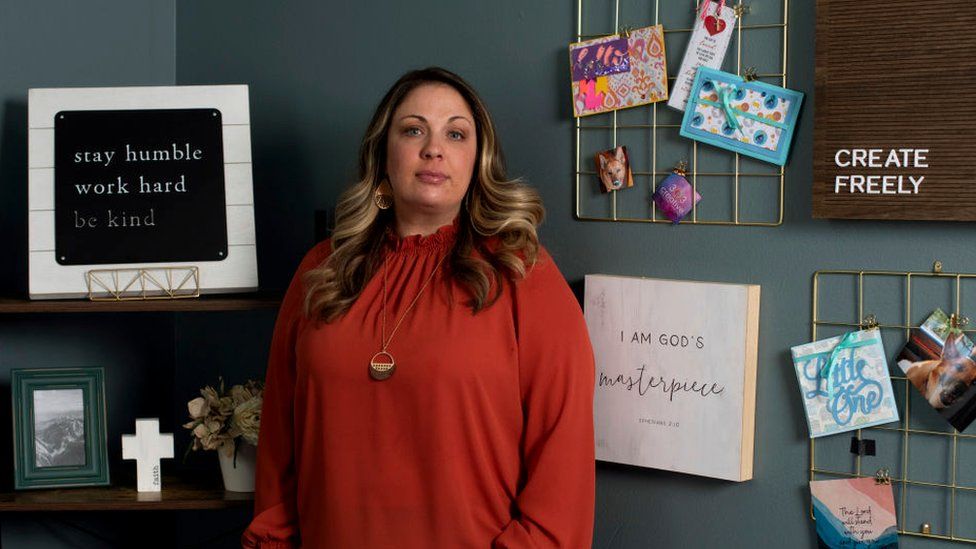
The US Supreme Court has ruled in favour of a graphic designer who has refused to create wedding websites for same-sex couples.
Lorie Smith, from Colorado, argued she could not serve same-sex couples because of her Christian faith.
Colorado state law prohibits businesses open to the public refusing service because of sexual orientation.
But the Supreme Court now says artists cannot be compelled to express messages against their religious beliefs.
The landmark case in the United States’ top court on Friday pitted the rights of LGBT people to seek goods and services without discrimination against free speech rights.
All six conservative justices sided with the designer, while the court’s three liberals dissented.
The majority opinion of the court is that the First Amendment, which protects free speech, blocks Colorado from forcing the designer to create endorsing messages with which she disagrees.
Justice Neil Gorsuch, who delivered the majority opinion, wrote: “The First Amendment envisions the United States as a rich and complex place where all persons are free to think and speak as they wish, not as the government demands.”
But Justice Sonia Sotomayor, one of the three dissenting justices, said: “Today, the court, for the first time in its history, grants a business open to the public a constitutional right to refuse to serve members of a protected class.”
She added: “Today is a sad day in American constitutional law and in the lives of LGBT people.”
President Joe Biden criticised the ruling and said he feared it could weaken long-standing laws and invite more discrimination.
“In America, no person should face discrimination simply because of who they are or who they love,” Mr Biden said in a statement.
Ms Smith, who lives in the Denver suburb of Littleton and runs web design businesses 303 Creative, is an evangelical Christian who has said she believes marriage is only between a man and a woman.
In 2016, Ms Smith filed a lawsuit that sought to block the state’s public accommodation law. After two lower courts sided with Colorado, the case headed to the Supreme Court which has now sided in her favour.
There have been question marks over whether there was ever an actual request to 303 Creative to provide a website for a same-sex couple.
But according to legal expert Katherine Franke, director of the Center for Gender and Sexuality Law at Columbia University, it does not matter whether any request had been made.
“What she was seeking is called a pre-enforcement order,” she said.
“Whether that was a legitimate or fabricated request for a wedding site, it doesn’t matter because nothing in the court’s opinion turns on whether she was actually asked to serve under the Colorado law.”
Like Colorado, most US states have similar anti-discrimination laws in place.
The case has highlighted a partisan rift in the US, with President Biden’s administration and 20 largely Democratic states standing behind Colorado in arguing that a ruling in Ms Smith’s favour could have far-reaching consequences.
Civil rights groups and scholars have warned that it would potentially open the door to other forms of discrimination, including racist, sexist and anti-religious views.
Meanwhile, some 20 Republican-leaning states, along with various religious groups, had voiced their support for Ms Smith.
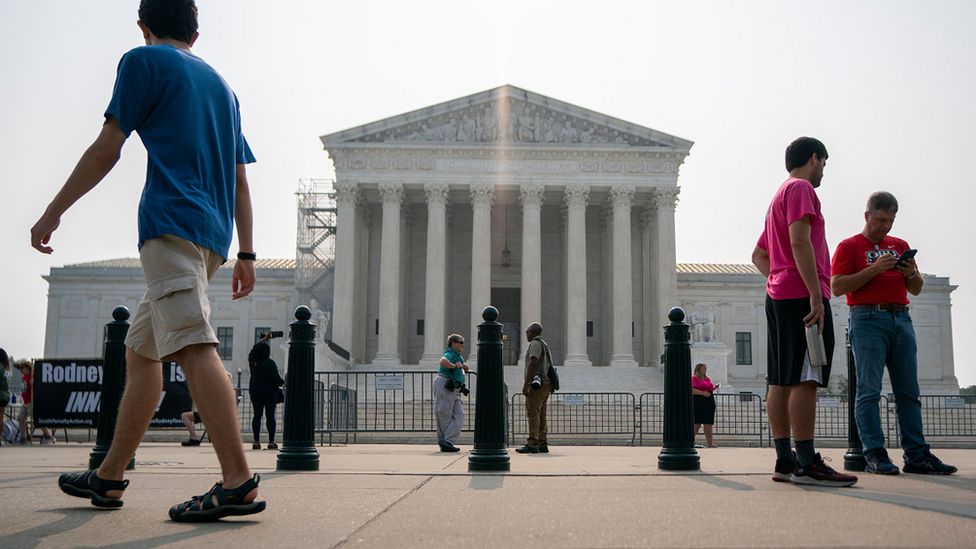
A similar case in 2018 centred on a Colorado-based baker, Jack Phillips, who argued that being legally required to create a cake for a same-sex wedding violated his rights to free speech and religious freedom.
The Supreme Court ruled narrowly in his favour, finding that Colorado failed to show tolerance for Mr Phillip’s beliefs.
The court, however, left open the question of whether states can apply public accommodation laws more generally.
The Supreme Court is the highest court of the United States, acting as a final arbiter of the law and interpreter of the US Constitution.
All justices are nominated by the President and confirmed by the US Senate.
Related Topics
-
-
12 hours ago
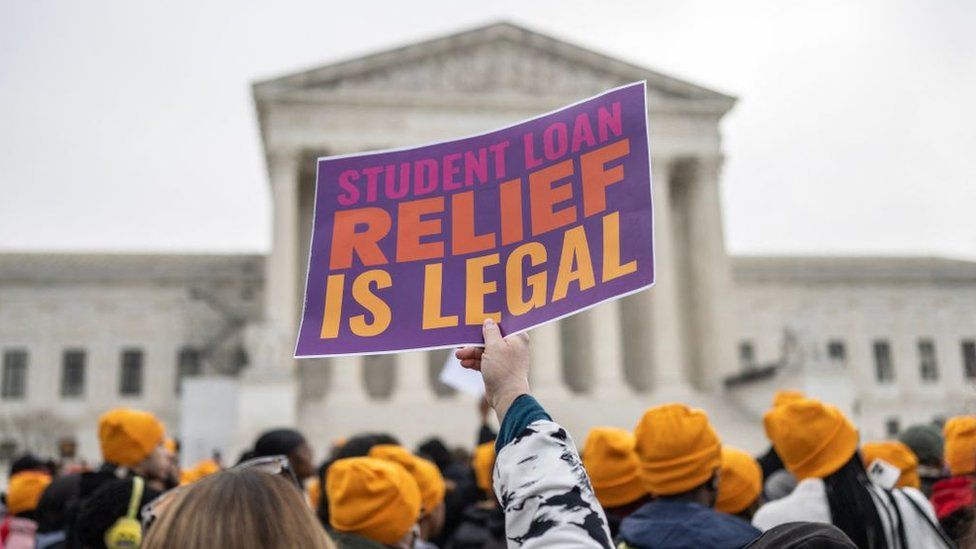
-
-
-
5 December 2022
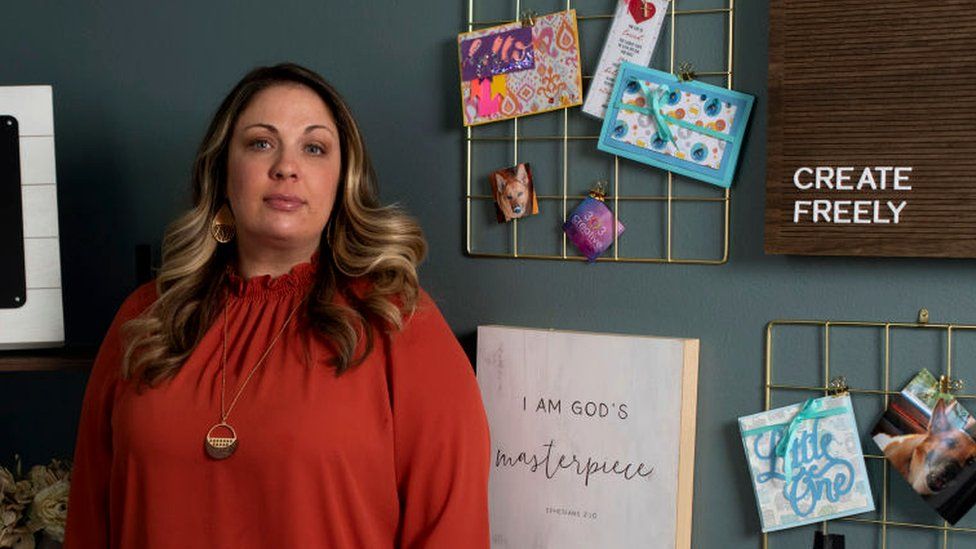
-
-
-
4 June 2018
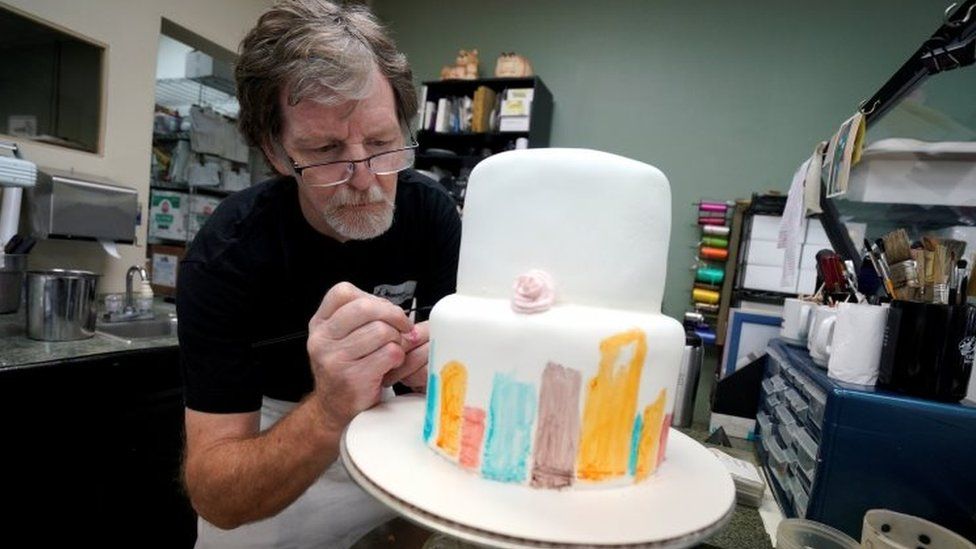
-
